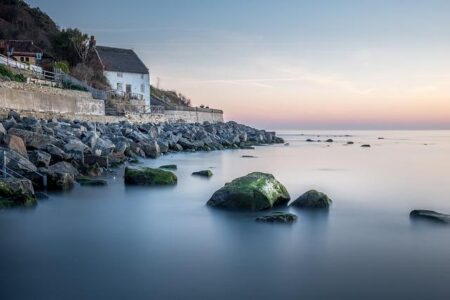The Department of Justice’s Office of the Victims’ Rights Ombudsman has intensified its collaboration with U.S. Attorneys’ offices across the nation to ensure that victims of federal crimes receive the protections and support guaranteed by law. As frontline enforcers of justice, U.S. Attorneys play a pivotal role in upholding victims’ rights, addressing concerns, and facilitating access to critical resources. This article explores the function and impact of the Victims’ Rights Ombudsman within the U.S. Attorneys’ framework, highlighting ongoing efforts to enhance victim advocacy and accountability within the federal justice system.
Key Roles and Responsibilities of U.S. Attorneys in Victim Advocacy
U.S. Attorneys serve a pivotal function not only in prosecuting federal crimes but also in ensuring the voices of victims are amplified throughout the legal process. They act as liaisons between victims and the justice system, promoting transparency and safeguarding victims’ rights. Their responsibilities extend to informing victims about case progress, upcoming court dates, and plea agreements, thereby fostering a sense of involvement and trust.
Key duties also include:
- Coordinating with victim-witness coordinators to provide comprehensive support services
- Advocating for restitution and compensation on behalf of victims
- Ensuring compliance with the Crime Victims’ Rights Act to protect victims from undue trauma
- Facilitating victim participation in sentencing and parole hearings
- Collaborating with community organizations to address victims’ needs beyond the courtroom
| Responsibility | Benefit to Victims |
|---|---|
| Case Communication | Keeps victims informed and engaged |
| Restitution Advocacy | Helps victims receive fair compensation |
| Legal Compliance | Protects victims’ statutory rights |
| Community Collaboration | Enhances holistic victim support |
How the Office of the Victims’ Rights Ombudsman Enhances Justice for Victims
The Office of the Victims’ Rights Ombudsman plays a critical role in ensuring that victims of federal crimes receive fair treatment under the justice system. By acting as an independent arbiter between victims and the Department of Justice, the Ombudsman helps uphold victims’ statutory rights, ensuring they are informed, heard, and respected throughout the legal process. Through direct communications and advocacy, the office addresses concerns related to victim notifications, case updates, and access to compensation programs, creating a bridge of transparency and support that fosters trust in federal prosecutions.
Key functions include:
- Investigating complaints regarding victims’ rights violations.
- Facilitating access to victim services and resources.
- Monitoring compliance with established legal protections for victims.
| Service | Description | Impact |
|---|---|---|
| Case Updates | Regular notifications about case progress | Empowers victims with timely information |
| Compensation Liaison | Assists with federal victim compensation claims | Provides financial support during recovery |
| Rights Advocacy | Ensures federal agencies honor victim rights | Strengthens legal protections for victims |
Challenges Faced by U.S. Attorneys in Upholding Victims’ Rights
U.S. Attorneys face a complex landscape when striving to balance the vigorous prosecution of cases with the imperative to uphold victims’ rights. One significant challenge lies in ensuring victims are consistently informed and heard throughout often lengthy and procedurally intricate criminal trials. Court schedules, legal confidentiality, and varying state laws can hinder timely communication, creating barriers that impact victims’ ability to participate meaningfully. Additionally, resource constraints such as limited personnel and funding complicate efforts to provide the comprehensive support victims deserve, often requiring U.S. Attorneys to make difficult prioritization decisions.
Key obstacles impacting effective victims’ rights enforcement include:
- Coordination gaps between federal, state, and local agencies
- Legal complexities arising from conflicting statutes and victim privacy concerns
- Ensuring consistent victim advocacy amidst shifting prosecutorial priorities
- Technological limitations in tracking and communicating victims’ case status
| Challenge | Impact on Victims’ Rights | Mitigation Strategies |
|---|---|---|
| Fragmented Interagency Communication | Delays in victim notifications | Implementation of integrated case management systems |
| Statutory Conflicts | Inconsistent application of rights | Regular statutory review and training |
| Resource Constraints | Reduced victim support services | Increased federal funding and partnerships |
Recommendations for Strengthening Victim Support within the Department of Justice
To enhance the Department of Justice’s commitment to victims’ rights, it is essential to implement a multifaceted approach that prioritizes accessibility, responsiveness, and comprehensive care. First, increasing training programs tailored for U.S. Attorneys on trauma-informed practices will ensure victims receive empathetic and informed legal support. Equally important is the establishment of dedicated victim liaisons within each U.S. Attorney’s office to streamline communication and provide a consistent point of contact throughout the judicial process. These measures can bridge gaps between victims and the legal system, reducing secondary victimization and fostering trust.
Furthermore, leveraging technology to create secure, user-friendly platforms can empower victims by offering timely updates about their cases and resources for support services. An investment in data collection and analysis will also help identify systemic barriers and trends affecting victim outcomes, enabling targeted policy adjustments. Below is a summary of recommended actions to strengthen victim support within the Department of Justice:
- Implement trauma-informed training for all DOJ personnel handling victim cases.
- Designate victim liaisons to improve personalized, continuous support.
- Develop secure digital portals for real-time updates and resource navigation.
- Expand data-driven assessments to inform program improvements.
| Recommendation | Primary Benefit | Timeline for Implementation |
|---|---|---|
| Trauma-Informed Training | Improved victim interaction and reduced retraumatization | 6-12 Months |
| Victim Liaison Roles | Consistent communication and tailored support | 3-6 Months |
| Digital Support Platforms | Enhanced transparency and accessibility | 12-18 Months |
| Data-Driven Policy Adjustments | Targeted improvements in victim services | Ongoing |
To Conclude
In sum, the U.S. Attorneys’ collaboration with the Office of the Victims’ Rights Ombudsman underscores a critical commitment to upholding the rights and dignity of crime victims across the nation. As the Department of Justice continues to strengthen these partnerships, the focus remains squarely on ensuring transparency, accountability, and support for those most affected by the justice system. Stakeholders and the public alike will be watching closely as these efforts evolve to better serve victims and reinforce faith in federal prosecutorial processes.




